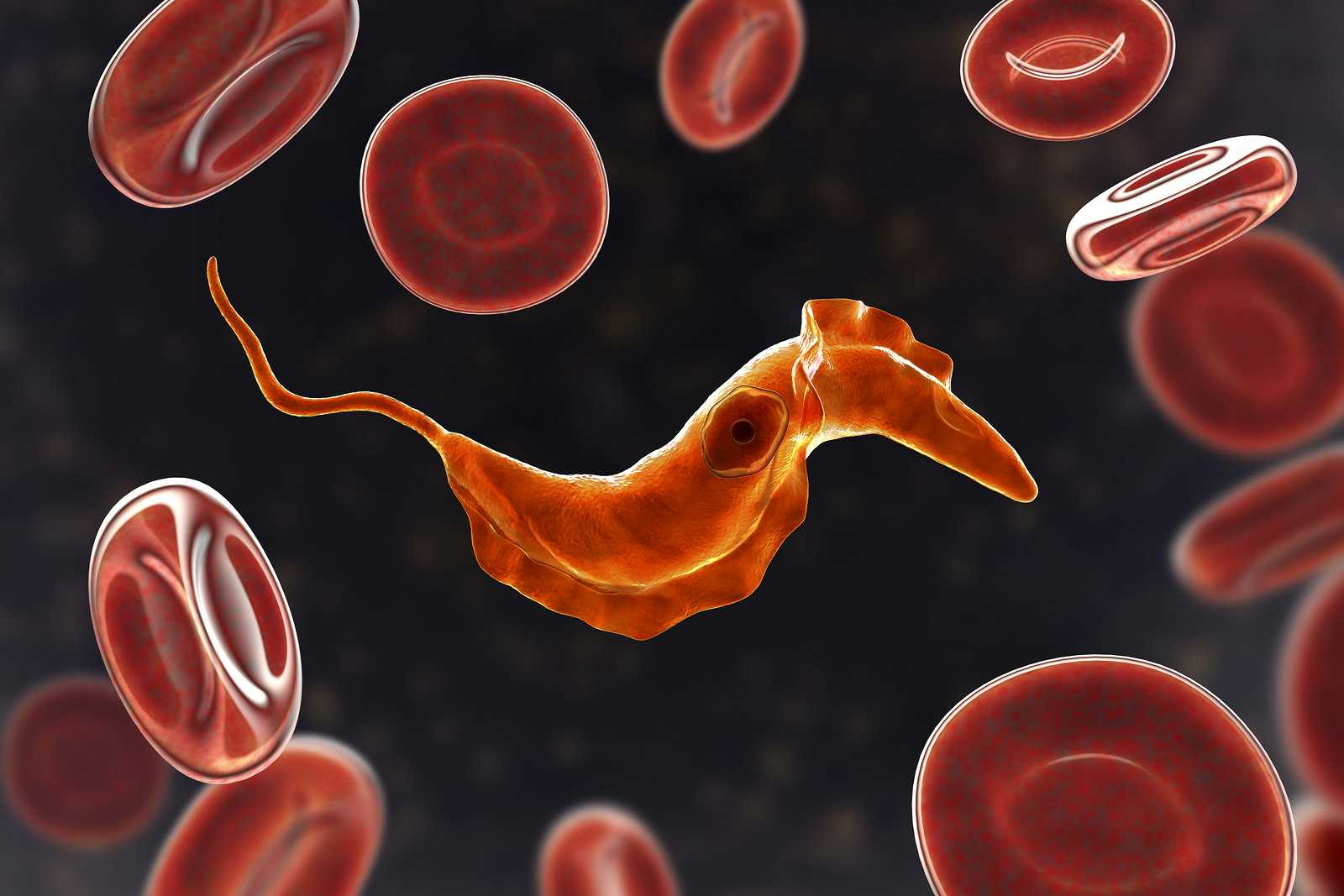
Climate change is altering the disease map. With warmer weather, ticks and insects that carry infections are moving into places where they were previously unknown. Many people have noticed that Lyme disease has spread far beyond its original location in New England. The lone star tick (Amblyomma americanum) that can trigger alpha-gal allergy has also been moving out of the southeast and into other parts of the country. Now the CDC warns that something similar is happening with Chagas disease.
What Is Chagas Disease?
We first heard about Chagas disease in 1973 while we were working in southern Mexico. A friend was examining people who were infected with the parasite Trypanosoma cruzi. They caught the parasite from a so-called kissing bug (a triatomine) that was common in rural communities. In these places, many people lived in houses made of adobe with thatched roofs. The kissing bugs lived in the thatch.
The disease was actually identified and named much earlier, in 1909. As is common in medicine, it is named after the doctor who discovered and described it. In this case, Brazilian Carlos Chagas, MD, worked out the connection between the bugs, the parasite they carry and the disease symptoms. These had been described by European explorers and conquistadors since the 17th century (Steverding, Parasites & Vectors, July 10, 2014).
What Are the Symptoms of Chagas Disease?
The triatomine insects that transmit the disease are called kissing bugs because they frequently bite people on the face. Then, (gross-out alert) the insects defecate on the bite. Otherwise, the parasites can’t penetrate the skin. The initial symptom of infection is swelling of the site around the bite. Some people may develop a fever or feel unwell in this acute phase.
The real problems with Chagas disease come later, often after a decade or more of exposure to the parasite. Chronic Chagas disease can cause heart rhythm abnormalities, congestive heart failure and sudden cardiac arrest if left untreated. In addition, the digestive tract may swell and fail in its function. People in this condition have trouble eating or eliminating their stool (CDC-Chagas Disease).
Where Are the Kissing Bugs Now?
Now, the kissing bugs that carry Chagas disease have moved north. There are at least two species. The CDC reports that they have been found in Virginia, Maryland, Illinois, Delaware and Pennsylvania. Kissing bugs live in many parts of the southern US. The protozoan T. cruzi parasite infects wildlife such as raccoons, opossums and skunks, which serve as reservoirs (Bern et al, Clinical Microbiology Reviews, Oct. 2011).
What Can You Do About Chagas Disease?
If someone suspects an infection, a blood test can detect antibodies to the parasite. The CDC distributes anti-parasitic drugs (benznidazole or nifurtimox) for treating the infection. These are very effective if used soon after the initial bite, but they can have serious side effects (Crespillo-Andújar et al, Clinical Microbiology and Infection, Dec. 2018). People who take them may experience rash, fever, digestive disorders, depression, insomnia, anxiety, muscle pain, shortness of breath and dizziness, among other problems.
Citations
- Steverding D, "The history of Chagas disease." Parasites & Vectors, July 10, 2014. doi: 10.1186/1756-3305-7-317
- Bern C et al, "Trypanosoma cruzi and Chagas' disease in the United States." Clinical Microbiology Reviews, Oct. 2011. doi: 10.1128/CMR.00005-11
- Crespillo-Andújar C et al, "Toxicity of nifurtimox as second-line treatment after benznidazole intolerance in patients with chronic Chagas disease: when available options fail." Clinical Microbiology and Infection, Dec. 2018. DOI: 10.1016/j.cmi.2018.06.006

